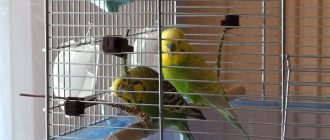Probably every owner of a furry purr has at least once observed the picture of his pet sitting or lying with his tongue hanging out. Initially, this touches and even causes laughter, but if it is repeated often, then, of course, it causes anxiety and worry in the owner. After all, the tongue is an important organ for cats, which is involved in many processes: from eating to self-care. Therefore, it is important that it is in its place, that is, in the mouth. If you notice that your cat systematically sits with his tongue hanging out, then do not delay a visit to the veterinarian, because this can be either a completely innocent “fun” or a symptom of a serious illness.
Diseases that may cause a cat to stick out its tongue
- Serious damage to the jaw
- Insufficiency of the cardiovascular system
- Disruption of natural processes occurring in the brain
- Mental disorder, nervous overstrain, severe fear
- Brain injury
- Increased body temperature
- Muscle atrophy
- Dental problems
- Breathing problems
- Disorders of the salivary glands
- Recovery from anesthesia. The cat will be able to completely close its mouth only a day after it.
- Sores or ulcers in the mouth.
- Stomach-related diseases: vomiting, diarrhea. The cause may be poisoning.
Possible reasons
The most basic cause of a cough may be a cat inhaling house dust. In this case, the problem can be easily dealt with by washing his face.
More complex are:
- Colds.
- Inhalation of harsh chemicals.
- Choking due to foreign object entering the upper respiratory tract.
- Problems with the cardiovascular system.
- Helminthiasis.
- Respiratory respiratory infections.
- Allergy.
- Oncology of abdominal organs.
You can tell that an animal is sick by its changed behavior - the cat stops playing, becomes lethargic, she tries to hide in a secluded place where no one will bother her.
Tongue protrusion when feeling normal
- Kittens may stick out their tongues when they are very tired after playing or a day full of different experiences. The protruding tip of the tongue indicates that they are tired and want to sleep.
- The tongue may stick out from behind the mouth when the cat is relaxed or sleeping. When an animal is in this state, this organ becomes slightly elongated and may not fit in the mouth.
- Rapid breathing, which appears in a pet after games, a long run and other vigorous activity, contributes to the desire to stick out its tongue. This promotes active saturation of tissues with oxygen.
- This way the cat can escape the extreme heat. This is explained by the fact that the pet does not have sebaceous glands, like humans, and it somehow needs to protect itself from overheating.
- Expressing emotions during play or other activities. A cat can express its attitude towards something this way or simply tease its owner. If this behavior has already become a habit, then there is no need to worry. The alarm should be sounded if there is a suspicion of a certain disease.
Thermoregulation
The cat's tongue is not only part of the digestive system, but also a natural thermometer and temperature regulator.
With its help, the animal more accurately determines the temperature of the environment and food. With food, everything is simple: if it is hotter than it should be, the animal will simply wait. Air temperature is a little more complicated. The surface of the skin of cats is almost completely covered with hair, so they are not able to correctly immediately assess whether they are hot or cold. In case of overheating, the skin with hair also cannot act as a thermostat: the area of evaporation to reduce body temperature is insignificant. There is a need to increase the area of evaporation, which is why cats stick out their tongues, lie down and relax at the same time, so that the fur interferes less with the cooling process.
This reaction also occurs in cases of overexcitement or stress: often our four-legged pets lie down while traveling, breathing heavily, hanging their tongues, sometimes even drooling. From the outside it seems that the cat is very ill, but in fact this is natural thermoregulation in action.
Features of cat physiology
- In hot weather, the animal's heat exchange may be disrupted. This is what the sticking out tongue says.
- If this behavior is accompanied by aggression and increased salivation, this indicates the presence of rabies or another serious infectious disease.
- The organ does not fit in the mouth. This may be a feature, or it may indicate the presence of oral diseases. This could be damage to the mouth, jaw or teeth.
- Mental retardation from birth. In such inferior kittens, which could have been bred in the process of crossing several breeds, this is an innate feature.
- Expression of fear at sharp, loud, unpleasant sounds. Many cats react this way to tape coming off. And for some others, such a reaction is observed with the cotton that is heard when champagne is opened.
- This unusual behavior may be quite normal for certain breeds of cats. Most often, this is how four-legged friends show their devotion and trust in their owner. However, some express delight in this way.
- Impaired sense of smell. The pet sticks out its tongue because it cannot catch some odors. And this causes him some inconvenience.
- The onset of labor, which is accompanied by strong nervous tension and intense licking of fur. Due to excitement and unpleasant sensations, the cat simply forgets about this organ, and it involuntarily falls out of its mouth.
- A bone stuck in the mouth, teeth or even throat. This is usually accompanied by certain sounds: coughing or snorting. The cat may also try to pick at its mouth with its paw. If you notice such symptoms, you should immediately contact a veterinary clinic.
- This is how pets can react to dogs. Especially if they have already had unpleasant experiences with these animals.
When a cat with its tongue hanging out is healthy
Read also: Qigong to boost immunity
Several variations are possible that do not pose a threat to health when the rough tongue is removed from the mouth of an adult or kitten:
- If a cat was cleaning itself by licking its fur, and was distracted by something interesting, for example, a bird flew past or the owners carried food past, he may well forget to hide his tongue and sit, looking into space, looking extremely stupid, and for quite a long time. If the cat is active, eats well, and plays, then nothing bad is happening. She just likes to walk like that.
- Another situation when a cat’s tongue sticking out is the norm is during childbirth. Here the cat has the right to breathe heavily, its body is doing difficult work and its muscles need more oxygen. Observe your pet carefully during labor, but without fuss. Additionally, you may need the help of a veterinarian or a trip to the clinic if labor stops and a caesarean section is required.
- A cat has the right to stick out the tip of its tongue when sleeping , especially deeply. This is a muscle that when it relaxes, it becomes longer. For those who are awake, it is constantly in good shape.
- A simple explanation can also be found when cats stick out their tongues after operations: the anesthesia includes drugs that relax the muscles. Their effect will stop within a day, but in the meantime, you should carefully moisten your pet’s mouth with water.
- Cats may stick out their tongues when flirting with the opposite sex. Moreover, it is not necessary to be nearby; males can smell females in heat 5 kilometers away.
The animal may be “teased” - stress, especially if the cat reacts to an unfamiliar environment, is accompanied by profuse drooling.
What to do
If you suspect that the kitten has a specific facial expression because it is sick, you need to visit a veterinarian and strictly follow his instructions. Don’t worry that you will bother the specialist unnecessarily. An examination is never superfluous, and it is much better to know for sure that everything is fine with the cat than to cause the disease to develop.
We figured out why cats stick out the tip of their tongue, and now you can easily understand when a tongue sticking out causes a smile, and when it is a menacing symptom. If you have any doubts, it is better to see a veterinarian.
Stress
The cause may be stress in cats. We will look at the symptoms and treatment below.
If the pet is stressed, the tongue will stick out. For example, when driving a car, if the cat is afraid, then the tongue will hang out the whole way. Fear, nervous shock, negative emotions are the reasons that cause stress in cats. When an animal is nervous, the following symptoms appear:
- tongue sticking out;
- the cat is shaking;
- the pet is trying to hide;
- meows constantly.
If the cat is scared, the symptoms may recur. Therefore, the animal requires treatment. He needs to be provided with complete rest. If necessary, the veterinarian will prescribe sedatives.
Heat
The main physiological reason why a cat sticks out its tongue is temperature regulation. The animal protrudes the organ to reduce discomfort, for example, during heat. This prevents the development of heat stroke. In this case, the owner should take the cat to a cool place and pour water on it.
But a cat's tongue sticking out can also be a signal of high body temperature. To understand whether your pet is suffering from heat or is sick, you need to figure out what temperature is considered normal in cats.
The normal temperature for a cat is 38-39 degrees. But don’t panic right away if the indicator deviates slightly from the norm. Here are the common reasons for the thermometer to shift:
- immediately after sleep, the thermometer drops by a couple of divisions;
- in the evening the cat’s body temperature will be higher than in the morning;
- Kittens have a slightly higher temperature than adult animals.
If the temperature rises due to illness, you should not self-medicate - the animal should be taken to the veterinarian.
Pathologies requiring treatment
As you can see, cats stick out the tip of their tongue quite often, and in most cases this is not a reason for panic, but in combination with a number of other symptoms, it may indicate the presence of health problems.
So, let's figure out when your pet should be taken to the vet as soon as possible.
Heart diseases
A cat can stick out its tongue with cardiomyopathy, ischemia, hypertension, heart failure and many other diseases of the cardiovascular system.
Functional brain disorders
Veterinarians identify the causes that lead to disruption of the brain and nervous system:
- traumatic brain injury;
- past infectious diseases;
- stroke.
The above reasons lead to a lack of coordination: the cat cannot independently control movements or control muscles. So he sticks out his tongue.
Veterinarians offer a small test that helps make sure that your cat has no neurological problems. If the animal sticks out its tongue, you need to touch it a little. If there are no neurological problems, the cat will quickly hide its tongue. If the actions do not bring results, we can talk about a pathological signal from the body.
Poisoning
Poor nutrition and poor quality food can lead to poisoning of your pet. The owner may notice characteristic symptoms:
- cough;
- urge to vomit;
- vomit;
- bloating;
- diarrhea;
- increased intestinal motility;
- gurgling in the stomach.
Due to frequent vomiting, the cat sticks out its tongue. Since pathological signs are present, it is impossible to confuse cat diseases with a physiological norm.










